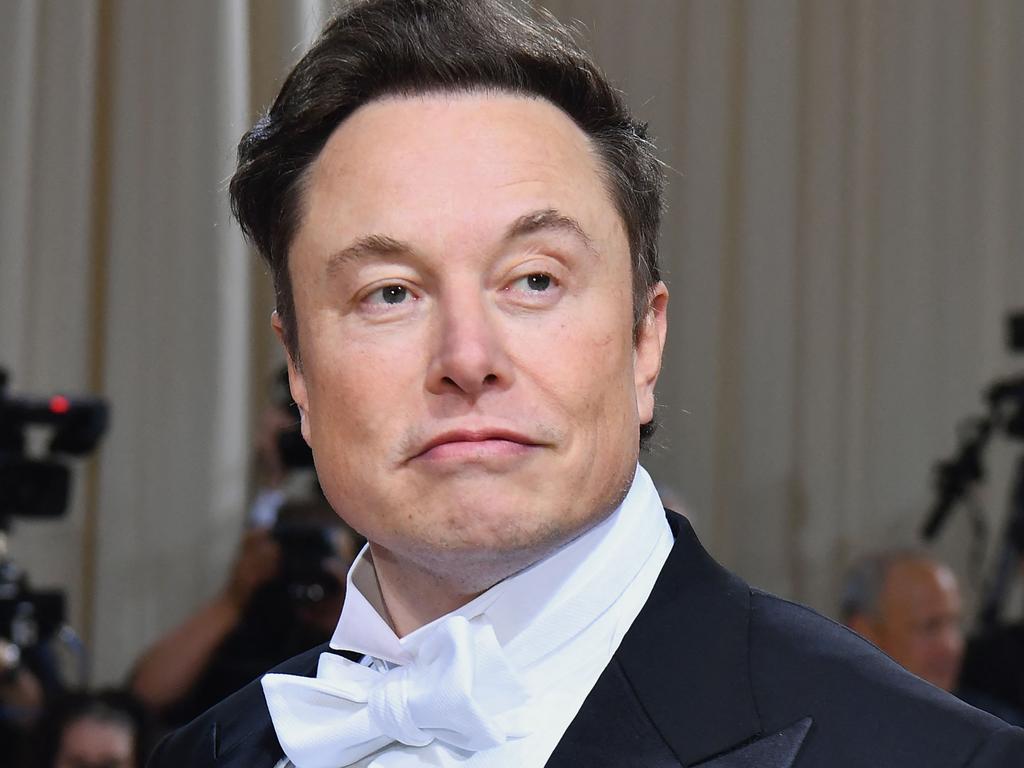We need to talk about Elon Musk

That Elon Musk, chief executive of Tesla and SpaceX, can move markets with a social media post is well established – from his own business to GameStop and crypto-fake Dogecoin.
We all need to wake up. Musk controls space assets that have become critical in a war that affects every Australian. His economic power, should he choose to wield it, could become significant in a war between China and Taiwan.
This is Marvel territory, but is Elon Musk Superman, the Joker or Deadpool? His tweeting is certainly schizoid.
Ordinary Australians are buying his Teslas for ethical reasons.
In September, Tesla was the third best-selling car of any kind in the country. Is it any wonder that Tesla chair Robyn Denholm – one of the more grounded business executives in Australia – eschews the media?
Take the intervention in Ukraine. In February, Musk was a hero for providing his Starlink low orbit satellites as vital communications on the front line when Russia cut internet access. SpaceX sent 10,000 terminals to Ukraine.
But Musk took things to a new level this month. On October 4, he released his plan for Ukraine and Russia. To many it looked straight out of the Putin playbook.
“Ukraine-Russia Peace: redo elections of annexed regions under UN supervision; Russia leaves if that is will of the people; Crimea formally part of Russia; Ukraine remains neutral,” Musk wrote in a post on Twitter. This was likely to be the outcome, it was just a question of how many died before then, he argued.
Ukraine was outraged at what it saw as Musk capitulating to the Kremlin and leaving Europe vulnerable. “Which @elonmusk do you like more? One who supports Ukraine, one who supports Russia?” Ukrainian president Volodymyr Zelensky responded.
“F… off is my very diplomatic reply to you,” Ukrainian diplomat Andrij Melnik added.
Four days after the peace plan post – on October 8 – came an uncomfortable development.
A Ukrainian government official told the Financial Times that outages in Starlink had led to a loss of communication on the frontline where Ukraine had been gaining ground. “We are just following his recommendation,” Musk told his followers, referring to Melnik’s earlier suggestion.
Bill Browder – once the largest foreign investor in Russia – has raised suspicions about the cause of Starlink’s problems.
He has noted Putin’s propagandist Margarita Simonyan had written to Musk requesting he turn off Starlink one day before it began malfunctioning in Ukraine.
Asked about Musk’s motivation, Browder told The Weekend Australian: “In the week that he makes some outrageous proposal for Ukraine to capitulate on Russia, the soldiers no longer have access to the Starlink satellite and can’t communicate. I think it’s probably worth trying to try to find out what’s going on behind the scenes.”
On October 11, speaking to CNN, Ian Bremmer of consultancy Eurasia Group said Musk had told him that he had spoken to Putin last month.
When Musk denied this, Bremmer doubled down, claiming Musk had said Putin also told him about the Kremlin’s red lines.
Starlink is also about money.
On Friday, CNN reported that SpaceX told the Pentagon in a letter that Starlink in Ukraine would cost $US400m ($641m) for a full year. The company could not fund Ukraine indefinitely; could the Pentagon cover costs?
But by Saturday, Musk had backflipped. “The hell with it … even though Starlink is still losing money and other companies are getting billions of taxpayer dollars, we’ll just keep funding Ukraine government for free,” he wrote on Twitter.
There is no doubt big money is being made by US companies in this war. Should Musk take all the blame for being a capitalist?
But his backflip may signal brand damage reduction after a backlash not just to his comments on Ukraine, but also those on China and Taiwan.
On October 7, Musk recommended a special administrative zone for Taiwan. And that China wanted to be assured that Starlink services would not be offered in China. Because China only recognises Taiwan as part of China, that request has been interpreted as no Starlink in Taiwan.
Musk’s use of Twitter to bait and switch takes on a different hue now he has a $US44bn takeover bid for the social media giant underway. Social licence matters in 2022. Is this really the guy the world wants controlling a social media company of influence and satellites that can bring down democratic governments, a man who can threaten and jest in equal measure?





The world’s richest man has brilliantly engineered himself into a position of power that should disturb markets and world leaders.